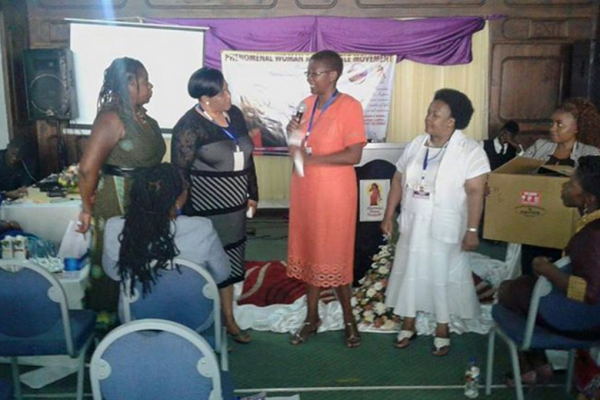
WOMEN in tourism say their fellows who failed to get funding from the Ministry of Indigenisation and Youth Development later discovered that their projects were being implemented by some government officials, an infringement on their intellectual property rights.
BY MTHANDAZO NYONI
Presenting under the topic Role of Women in Tourism — Zimbabwe Perspective recently at the tourism sector strategy workshop in Bulawayo, Tshulu Tsha Nabe Lodges official, Faith Ntabeni-Bhebe, said women in the country were facing challenges of intellectual property rights.
“Women who failed to get funding from the Ministry of Indigenisation and Youth Development later discovered that their projects were being implemented by some government officials,” Bhebe said.
“Similar experience at the Ministry of Small and Medium Enterprises, after submitting a lot of detailed paperwork that was required, saw their ‘plan’ being implemented by other people. The Ministry never got back to them,” she said.
The government under the former president Robert Mugabe used to avail funding for youths and women for projects start-ups, but Bhebe said a number of women did not benefit from the fund.
Ntabeni-Bhebe said while women constituted the majority of the tourism workforce, they were in fact concentrated in lower level positions.
“Employment patterns continue to reflect traditional gender roles with few female workers in the wildlife, adventure safaris and transport sectors. In family businesses women are involved in sizable amounts of unpaid work,” she said.
- Chamisa under fire over US$120K donation
- Mavhunga puts DeMbare into Chibuku quarterfinals
- Pension funds bet on Cabora Bassa oilfields
- Councils defy govt fire tender directive
Keep Reading
Ntabeni-Bhebe, however, said women had made major strides in areas such as ownership of small and medium sized accommodation facilities, travel agency business; restaurants; crafts and interior-deco; participation in community based tourism ventures as well as shebeens.
She said business types ranged from registered to unregistered facilities and participation was limited to micro level enterprises.
“Women owned business tend to remain stagnant for years – no expansion and in some cases no intention to expand,” Ntabeni-Bhebe said.











